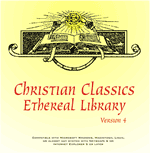We're constantly in search of some big name to agree with us. Whether you're a Christian, an atheist, a deist, a soccer fan, a libertarian, a size 12 shoe wearer, or whatever other card you've decided to carry (by choice or otherwise), it's always nice to be able to say "Hey, you know such and such carries the same card as me?" There's nothing wrong with that necessarily.
The real problem starts when the next step in the logical equation is "... and therefore I'm right." That's called a "logical fallacy." In other words, when someone says "James Madison was a Christian, and he was our 4th President," and they're implying that you should be a Christian too, (or maybe they're trying to imply that America is therefore a Christian nation) this is plainly illogical and is a prime example of the sort of nonsensical arguments that should be combated against by the thinking man.
That being said, we can examine what various Founding Fathers have written about their various faiths and religious beliefs. But let's keep in mind that what they thought about matters of faith and religion (two different things, by the way) are not to be used as a basis for proving a point. Some of the Founders have left a great deal in writing about their beliefs concerning God, but most of them write primarily about how religion and matters of state should, in their own personal opinions, coincide or be separated. There are two things that must not be confused when reading the writings of the Fathers. First, we must recognize when they are writing concerning the relationship between organized religion and the state, and second we must not confuse that with their own personal faiths. The two subjects could be, and still are, two very different issues.
Faith, for starters, is not the same as organized religion. What a person holds as his or her personal belief system, is not to be confused with what one does in a congregational setting. Neither is it to be confused with one's belief about what should be enforced on others by law or statutes.
In the case of James Madison, in particular, there is a plethora of evidence that the man quite clearly and emphatically felt that matters of organized religion should be left very much apart from anything to do with government. Was he right? That's a matter for a different discussion. Personally I believe he absolutely was right, but that's just my opinion.
But what of the man's personal beliefs? What do we know? What don't we know? What we do know is that there has been a great deal of speculation from people claiming affiliation with Mr. Madison's beliefs (for whatever reason). One thing that I feel we can say for sure, is that we're not entirely sure about James Madison's personal beliefs.
Here are the facts though. James Madison studied theology at Princeton University and was apparently their first graduate student there, at what was then the College of New Jersey (now Princeton). He was considering going into the ministry himself at that time. During his Presidency, he attended St. John's Episcopal Church . That is about the end of any solid evidence for Madison ever being a true convert. The rest is pure conjecture and opinion.
My personal opinion on the matter is that he was a Christian, based on the tone and wording of his arguments for the separation of church and State. Specifically, his "Memorial and Remonstrance Against Religious Assessments" and the way he argues from certain positions, logically against the necessity for government to endorse any particular sect of Christianity, makes me believe he was arguing from a position of conviction of the Truth of Christianity, without the need of any sort of government backing. I will certainly not be at all dogmatic on this opinion, as no one else should be either. There simply is not enough evidence on the matter to make the call one way or another.
So was James Madison a Christian? I personally think he was. But the bottom line is, it just doesn't matter. Madison wholeheartedly believed that religious establishments of any kind should play absolutely no part in government, and I think he was right. America is not a nation founded on Christian principles. It is a nation founded on individual liberty, and freedom from Tyranny of all kinds, including Religious Tyranny. These ideals trumped whatever personal faith the Founding Fathers themselves had as individuals, when it came to putting together a nation.
Wednesday, June 27, 2007
Subscribe to:
Comments (Atom)





